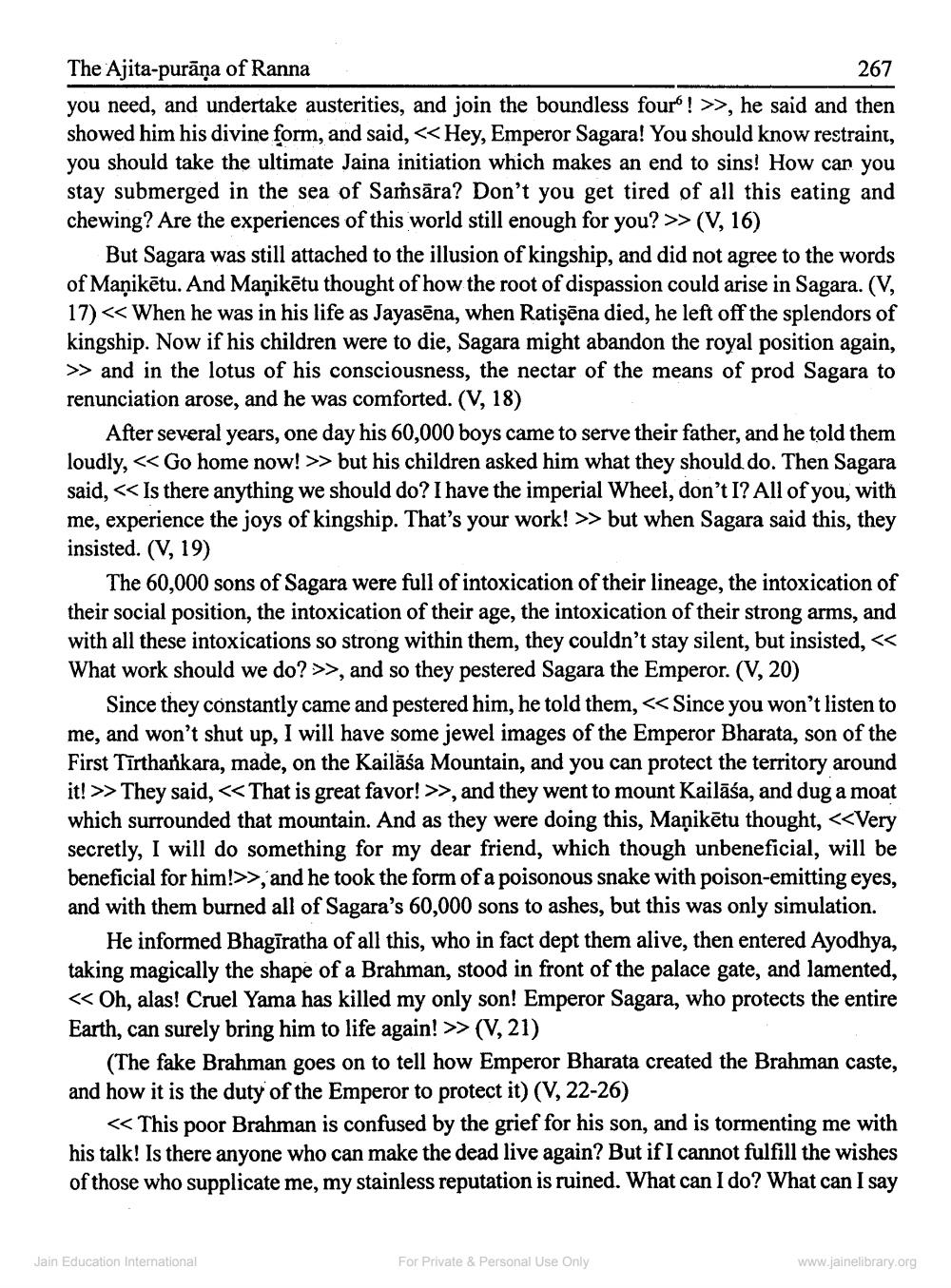________________
The Ajita-purāņa of Ranna
267 you need, and undertake austerities, and join the boundless four!>>, he said and then showed him his divine form, and said, << Hey, Emperor Sagara! You should know restraint, you should take the ultimate Jaina initiation which makes an end to sins! How can you stay submerged in the sea of Saṁsāra? Don't you get tired of all this eating and chewing? Are the experiences of this world still enough for you? >> (V, 16)
But Sagara was still attached to the illusion of kingship, and did not agree to the words of Manikētu. And Manikētu thought of how the root of dispassion could arise in Sagara. (V, 17) << When he was in his life as Jayasēna, when Ratişēna died, he left off the splendors of
gship. Now if his children were to die, Sagara might abandon the royal position again, >> and in the lotus of his consciousness, the nectar of the means of prod Sagara to renunciation arose, and he was comforted. (V, 18)
After several years, one day his 60,000 boys came to serve their father, and he told them loudly, << Go home now! >> but his children asked him what they should do. Then Sagara said, << Is there anything we should do? I have the imperial Wheel, don't I? All of you, with me, experience the joys of kingship. That's your work! >> but when Sagara said this, they insisted. (V, 19)
The 60,000 sons of Sagara were full of intoxication of their lineage, the intoxication of their social position, the intoxication of their age, the intoxication of their strong arms, and with all these intoxications so strong within them, they couldn't stay silent, but insisted, << What work should we do? >>, and so they pestered Sagara the Emperor. (V, 20)
Since they constantly came and pestered him, he told them, <<Since you won't listen to me, and won't shut up, I will have some jewel images of the Emperor Bharata, son of the First Tīrthankara, made, on the Kailāśa Mountain, and you can protect the territory around it! >> They said, << That is great favor! >>, and they went to mount Kailāśa, and dug a moat which surrounded that mountain. And as they were doing this, Manikētu thought, <<Very secretly, I will do something for my dear friend, which though unbeneficial, will be beneficial for him!>>, and he took the form of a poisonous snake with poison-emitting eyes, and with them burned all of Sagara's 60,000 sons to ashes, but this was only simulation.
He informed Bhagīratha of all this, who in fact dept them alive, then entered Ayodhya, taking magically the shape of a Brahman, stood in front of the palace gate, and lamented, « Oh, alas! Cruel Yama has killed my only son! Emperor Sagara, who protects the entire Earth, can surely bring him to life again! >> (V, 21)
(The fake Brahman goes on to tell how Emperor Bharata created the Brahman caste, and how it is the duty of the Emperor to protect it) (V, 22-26)
<< This poor Brahman is confused by the grief for his son, and is tormenting me with his talk! Is there anyone who can make the dead live again? But if I cannot fulfill the wishes of those who supplicate me, my stainless reputation is ruined. What can I do? What can I say
Jain Education International
For Private & Personal Use Only
www.jainelibrary.org




